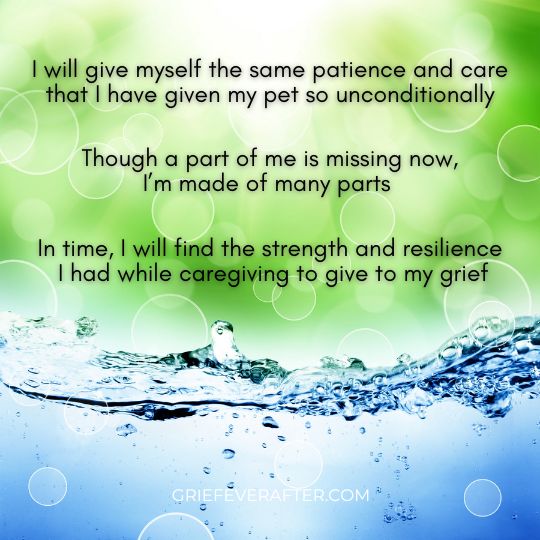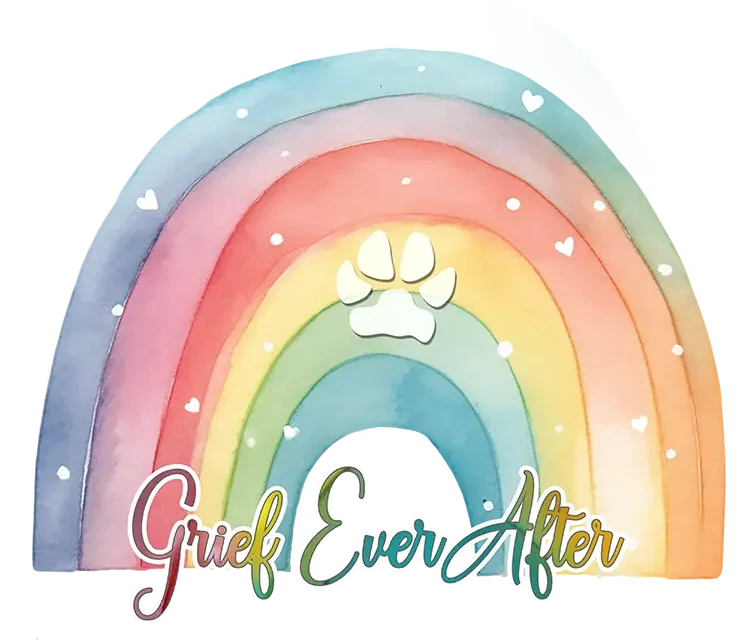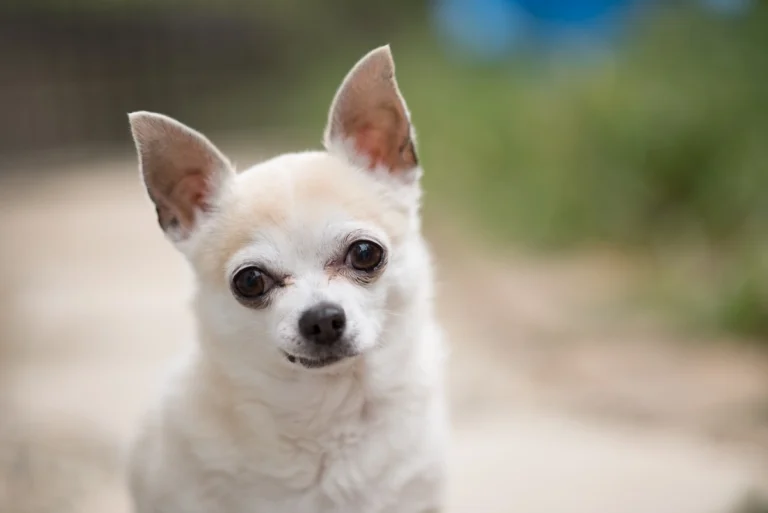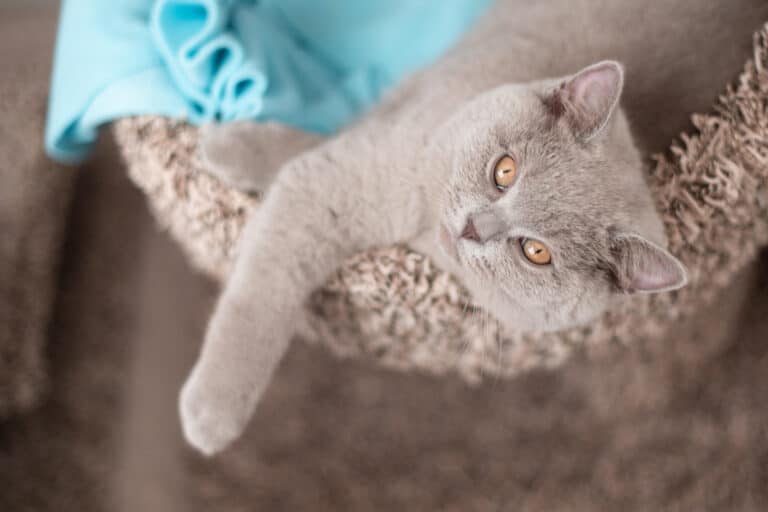Pet Loss After Caregiving – A Healing Journey
This post turned out longer than I thought. But if you’re reading this, you’ll understand. The journey through pet loss after caregiving is complex. So, talking about it is complex.
Grief is heartbreaking enough, but when you’ve been intensely caring for a sick or aging pet, sometimes for years, you’re faced with deep layers of loss, longing, and emptiness.
The human-animal bond is felt from the moment you meet your beloved pet. Their presence, by nature, has many layers. They’re child-like, a partner through life, a confidant, a best friend, and an unwavering support. You give them love and care from day one.
When a time comes where, together, you’re faced with a diagnosis or age related decline, the caregiving becomes more and more demanding. Your connection deepens even further. It’s an enormous emotional commitment requiring significant time and sometimes financial responsibility.
The bond you share and the caregiving needed day in and day out intertwines your lives in ways that are both beautiful and heartbreaking.
The Intricacies of Caregiving for Your Pet
Communication Beyond Words
In many ways, not needing language to communicate makes a relationship with a pet endearing and uniquely special. But there are a few times in life where having some words would make things easier. Of course, we don’t have that option though.
Learning and deciphering non-verbal cues, body language, appearance, and what their eyes might tell you is part of what makes caregiving such a precious experience. You learn what might indicate an “off” day by their posture, gait, or sleep patterns. You anticipate if they’ll eat by the look in their eyes. You know if they’re comfortable just by a sixth sense you develop.
It’s a testament to the bond you can have with someone who doesn’t talk. They can’t speak your language so you learn to interpret theirs as best as you can.
One pitfall? The belief that you should always know. You should always know if there is a change or they’re declining. You expect that even when the little signs or signals aren’t there, you’re still going to know. If and when that’s not what happens, the self-blame and guilt can spiral.
A Sense of Control & Responsibility
When your pet is faced with a diagnosis or the challenges of old age, one of the most empowering things you can do is determine how to be proactive. How to give them a fighting chance. Sometimes, options are limited or non-existent. But when there are options, you take the bull by the horns and get ready to fight.
Treatments, supplements, food, modalities, specialists – these are your weapons against disease or aging. It can feel powerful to say, “we’ve got a plan and we’re not giving up”.
Being action-oriented can sometimes mask the reality that declining health is not always controllable.
Then, there’s the bounce back. Your pet may decline and bounce back enough to truly believe that it will always happen. The bounce back can really mess with your head.
The juxtaposition of feeling like you have control and not having much at all, is complicated. And when the time comes that you’re faced with the gravity of an end of life decision, it can translate into somehow you’ve failed. You lost control. A narrative your mind creates because it’s easier than feeling powerless.
Companionship Through Tough Times
Facing tough times together strengthens the bond you share more than you thought even possible. Pets see you through so much of life’s ups and downs, when it comes time that you can give them the same care and devotion back, it’s profoundly meaningful.
Of course, you’ve always been a team, but now you’re a team fighting to stay together. You may give up hobbies, social activities, and self-care in order to be there for your pet. You might even adjust your work or professional schedule to be able to attend to them.
You willingly sacrifice parts of your life for your pet. Often, others don’t understand this part; the selflessness. Sacrifice is seen as a burden. But it’s such a privilege to be able to give someone everything you can when they need you most.
Personal Growth
Caregiving is an experience requiring patience, gentleness, and compassion. Beyond the day to day support you also build an emotional resilience in the face of ongoing challenges.
Deep sadness may have to be tucked away so you can focus on your pet’s daily needs. Fear of watching them decline or what tomorrow will bring looms in the background. Anxiety is off the charts, but you manage to learn to survive with it. Frustrations of finding the right course of treatments or starting all over again with something new are common.
There is so much you learn about yourself while caring for someone else. Prioritizing compassion over frustration, celebrating small victories, staying in the present, and finding strength during setbacks.
These lessons about love, sacrifice, and the importance of cherishing every moment, shape you into a more compassionate person. Ironically, in grief, compassion extended to yourself can be hard to come by.
The Impact of Pet Loss After Caregiving
Very simply put, everything changes when your pet passes. Your home, your routine, your identity. New anxieties and fears about life replace the ones you became so accustomed to while caregiving.
Even when you’ve had a period of anticipatory grief, losing your pet is devastating. No longer tethered to everything you’ve known, it can feel like your purpose is gone and it’s really hard to imagine anything but that void.
There will be a long period of survival – just getting through the days. Your mind and body are hardwired to the life you’ve known and it’s painful when that ends. There is deep sadness, loneliness, and feeling like you’re in a metaphorical free fall.
The disconnection and disorientation of the early parts of grief are like quicksand. Hard to know how to pull yourself out. You know that empathy, care, and compassion you’ve had for your pet while caregiving? It’s time to find some for you now.
In time, the work of grief means that you seek out things that bring you comfort and keep you feeling connected to your pet. You’re cultivating a new world where love still exists even though someone is not physically here.
There will be different ways to connect, to feel love present, and a renewed sense of purpose. But it doesn’t happen quickly or without a lot of sadness and heartbreak. Grief is a long journey.

What Are Some Ideas For Coping?
Coping evolves as grief does. The more you find things that bring you a sense of comfort, the more you begin to figure out what your new everyday might look like. In the beginning there will be basic survival needs. As time passes, you may feel more energy and desire to put effort into actively mourning.
Linking Objects
Find something that distinctly represents your pet. For some it may be photos, an urn necklace, or bracelet with their photo or initial. It could be a toy your pet always loved, or even a little envelope of their fur.
Something you can have with you all the time, but especially out in the world, as you return to life’s obligations. A token that you can draw strength from to get through the moment, the day, a drive, or even to help you fall asleep.
When my heart dog died, I still had the remnants of a toy that he’d torn up. The toy was a frog and he’d ripped the leg off. I had kept both pieces thinking I’d do stuffed animal surgery one day to fix froggy up. But after he died, I took this small, three legged frog with me everywhere. In the car, in my pocket, on my nightstand.
That little stuffed frog was a powerful connection.
Memorial Spaces
Memorial spaces might be simple or elaborate. Whatever is right for you. Have a place for remembrances. Photos, your pet’s collar or favorite toy, their bowls, a candle, ashes. Anything that holds special meaning.
It could be a special spot in your home, maybe you could collect special things in their bed, or you could have one photo and a small candle somewhere meaningful. This is what mourning work is, and in large part, how you start making baby steps on this journey.
New Habits
Caregiving is so time consuming that it can be shocking how drab and pointless everything seems in grief. New habits and routines take a lot of energy and motivation, which you might not have an abundance of for a while.
You won’t have all the answers or big plans in week one. But knowing you want to explore this is pivotal.
If certain times of day are hard, consider journaling or walking for 10 minutes. If sleep is hard, reading or meditations can help. If the overall emptiness is oppressive you might consider doing something totally new and different – taking a pottery class, baking, exercising, getting into podcasts, gardening, or starting a new hobby.
Slowly allow yourself to fill some of the space in your day. Often, if you can find a way to connect your pet to these new ideas, it feels like a bridge between grief and life.
With that mindset, the previous list might look like – taking a pottery class and making a special piece for your loved one. Baking treats for a local shelter in their name. Listening to podcasts about healing in grief or about animals. Creating a garden for your pet. Or starting a new hobby that reminds you of your pet (drawing, crocheting, or photogprahy).
In time, you’ll find what is right for you.

If I can offer any glimmer of hope it’s that grief does change and evolve. It doesn’t happen in the blink of an eye though. When you are re-learning everything about life and how to exist within a different context, it’s a slow process.
Just like learning and refining your caregiving skills took patience, grief does too. You may have to muddle through a lot of days before you find your glimmer of hope, but it will be there. And that resilience you have had through all the caregiving will resurface as you now care for your heart while it heals.






